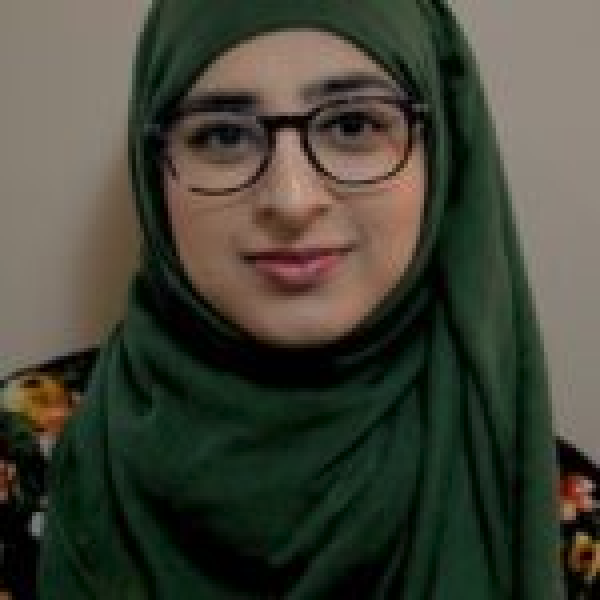Women and Girls in the Arts and Creative Industries
Provocation Piece

“Are you an Iranian filmmaker?”, “Have you come from Saudi Arabia?”, “Do your parents not want you at home, married with kids?”.
These were questions asked of me in my first five years within the Scottish film/television industry. I got asked questions in spaces I was invited to, places where I was showcasing work, and while helping to organise events for women in the industry.
My Glaswegian accent and Pakistani – not Middle Eastern – heritage are obvious answers to the first two questions. The last one was tougher – and posed at a time when my imposter syndrome was high.
Ultimately, they were all asking the same thing: why are YOU here? I was raised by parents who prepared me to be independent, ready to take on the world. But as I took my first steps into the industry, they were a little uncertain. Not because they wanted me to be ‘stuck in a house, married and pregnant’ – no, my parents were all too aware of what I was stepping into: an industry with pockets of extreme toxicity, portraying Muslims communities as terrorism and Muslim women as victims.
Who could blame them for worrying?
In my wildest dreams – the ones I didn’t dare share with anyone – it was writing, directing, and storytelling that felt like home… so when the door was opened, even just that little bit, I had to step through. I had people around me encouraging me – and without them, maybe I wouldn’t be writing this now – but I wasn’t without fear or worry. Getting in was just one problem. Being in was harder.
Growing up, I didn’t see any hijab-wearing Muslim women on screen. I definitely didn’t see them as writers, directors, producers, cinematographers… or anywhere else within the world of film or television. I stepped into a world where I stood out like a sore thumb, where I constantly questioned myself whether my presence was due to merit or a “tick box exercise”. The only visible Muslim woman at industry events, I could feel the looks on me as soon as I walked into a room. In meetings pitching my work, I was fighting against stereotype and misconceptions – playing both creative and activist. The weight of representing entire communities was an ever-present worry.
I’ve been working in the industry for 11 years now. Some of those concerns have gone. Others have evolved. Imposter syndrome is only present sometimes, and I now know so many amazing Muslim creatives within the industry.
But the conversations around Muslim women haven’t changed. Almost weekly, examples abound of the ways Muslim women are told who we can or can’t be, how we should or shouldn’t dress, where we can or cannot go. It becomes very clear that the comfort I feel as a creative doesn’t change the need for me to be an activist within my creative work, and fight for women like me to be seen and heard. But the fight isn’t just for my own community: it’s for all those communities that have been misrepresented.
When you come from an under-represented (or badly represented) group, sometimes your work becomes 50% activism and 50% doing the work you really want to do. Your very presence can seem political, especially to those whose first reaction is ‘why are you here’. I dream of a day where we can just do our job without fighting for the space within which to do it. Until then, we organise, we fight, and we create the stories that dismantle centuries of colonialism, patriarchy, and othering.
Raisah is a Scottish Asian Muslim Writer/Director, based in Glasgow, working across television and film. Currently in development with Producer Zorana Piggott and Film 4 on WW1 feature ‘Half-Moon Camp’, as well as developing a cross-generational female-led road trip feature project ‘Safar’ with Zorana.
Her writing credits include CBeebies shows ‘Feeling Better’, ‘Molly & Mack’ and ‘Swashbuckle’, as well as ‘Control’, a BBC The Social phone drama and ‘Aden’s Journey’, a short drama about a refugee unaccompanied minor for the Celcis course ‘Caring for Children on the Move’.
Alumni of the EIFF Talent Lab 2014, Raisah’s BFI Net.Work commissioned short ‘Meet Me By The Water’, which premiered at EIFF 2016. It went on to be programmed by BBC Scotland’s ‘Next Big Thing’ programme. She directed one of BBC 3’s ‘The Break III, 2018’, was a shadowing director on CBeebies ‘Molly & Mack S2’ and has most recently directed on CBBC’s ‘Sparks’ (2020) and ‘Princess Mirror-Belle’ (2021).